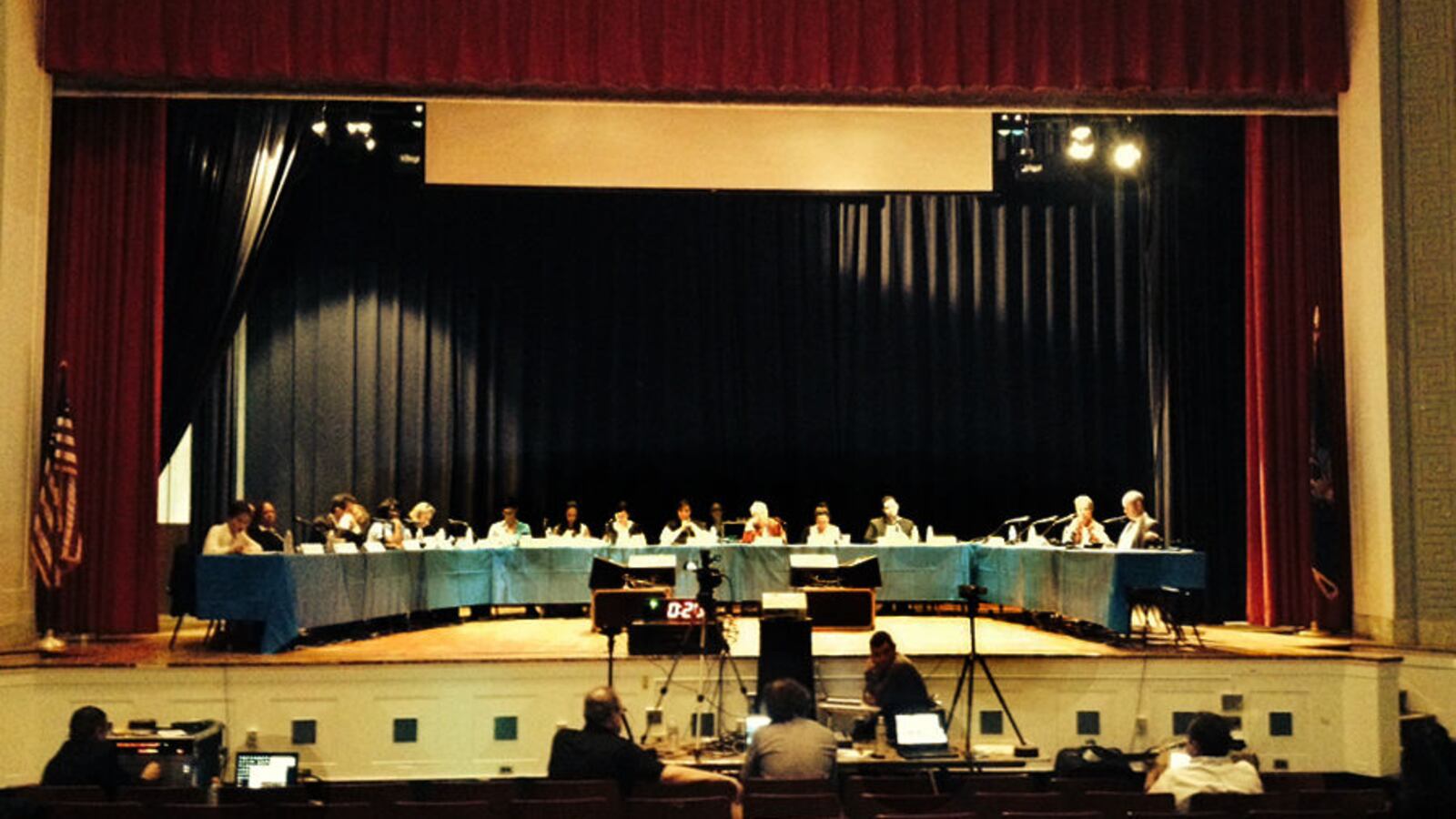After casting a deciding vote blocking the education department from closing two Queens schools last month, T. Elzora Cleveland resigned from the city’s education oversight board.
The February vote represented an embarrassing and unusual rebuke of the administration’s plans, since Mayor Bill de Blasio appoints the majority of the board’s members — including Cleveland. And while the reason for Cleveland’s departure after four years on the Panel for Educational Policy was not completely clear, the timing suggests she may have run up against the limits of City Hall’s patience for dissent on its school closure proposals.
City Hall confirmed on Friday that Cleveland had stepped down. Cleveland did not respond to requests for comment.
“After four years of serving on the PEP, Ms. Cleveland submitted her resignation this week and we are actively working to appoint a new panel member to fill her seat,” said Olivia Lapeyrolerie, a City Hall spokeswoman. “We are grateful for her service and commitment to our city’s students.”
At the panel’s regular meeting last month, members were set to vote on 13 closure proposals — including eight struggling schools in de Blasio’s controversial Renewal turnaround program. It was the largest single round of proposed closures since de Blasio took office.
After more than seven hours of emotional testimony from hundreds of parents and elected officials, who had spent weeks lobbying against the closures, the panel narrowly blocked two of them: M.S. 53 Brian Piccolo and P.S./M.S. 42 R. Vernam, both in Queens. The final vote on both proposals was 6-6; Cleveland was the only mayoral appointee who voted “no.” (Another mayoral appointee, Isaac Carmignani, abstained.)
In an interview, Carmignani said he abstained because the two Queens schools were still recovering from Hurricane Sandy and had shown some improvements. City Hall did not try sway his vote, Carmignani said, and he did not face blowback after the meeting. “I wasn’t under a lot of pressure one way or the other,” he said.
Cleveland has served on the board since 2014, when de Blasio named his first batch of appointees. Established in 2002, the panel was created after the previous mayor, Michael Bloomberg, successfully lobbied for central control of the country’s largest school system.
Bloomberg didn’t hesitate to exert his control over the board, booting three members in one fell swoop when a proposal to change grade promotion requirements appeared doomed to fail — a move that was dubbed the Monday Night Massacre.
But de Blasio promised his tenure would be different. “We want real debate. We want a panel that really listens,” de Blasio said when he appointed his members.
De Blasio has attempted to close many fewer schools than Bloomberg did, and several other de Blasio proposals have been voted down. Still, Cleveland had been a less reliable vote than other members when it came to the administration’s plans.
In 2015, she was among four members who rejected a proposal to allow a Success Academy charter school to open in Brooklyn. At the time, it was only the second instance of the panel voting down a city proposal.
Months earlier, Cleveland was one of five dissenters who voted against locating a charter school in the same building as three district middle schools, all of which were in the city’s Renewal turnaround program. The proposal still passed.
Stephanie Soto, another mayoral appointee, was not at February’s meeting and is no longer listed on the panel’s website. Jose Davila was introduced as a new member at that meeting.
Meanwhile, the city’s new schools Chancellor Richard Carranza is expected to start April 2.

